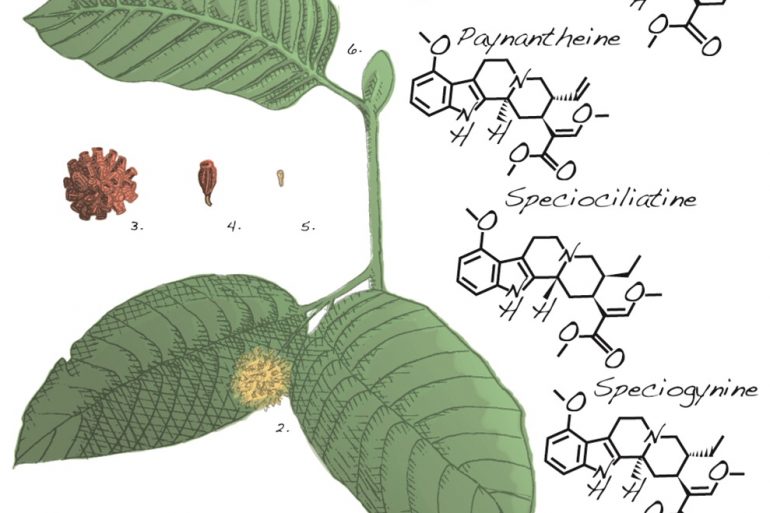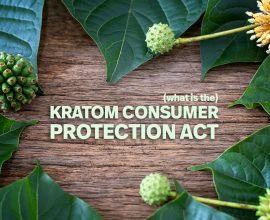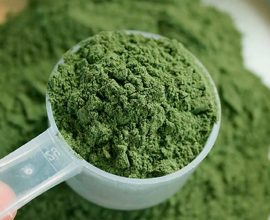Reputable Kratom sellers discuss their lab-certified testing and how their product is of the highest quality because they conduct tests conducted by third parties. It’s wonderful that quality kratom is now a vital business element. However, what exactly are they testing for? What are the results of lab tests, and why do these results have significance for you?
When a laboratory test is carried out, kratom users aren’t always aware of what they are being tested for. Today, we’ll share more details to help you comprehend the Kratom laboratory results. Find out the types of things the lab tests for, why we do it, and what to look for when you look over the analysis report.
What Is Kratom Laboratory Testing?
Kratom laboratory testing is a method that production companies and suppliers employ to evaluate their capsules, powders, extracts, and other products derived from Kratom. The tests look for heavy metals and pathogens while learning more about the history of the product’s origins, alkaloid content, and other characteristics. A third-party laboratory that is accredited typically conducts laboratory testing. Some vendors even have multiple third-party testing agencies that cooperate with them.
Vendors can provide their testing data on their websites or offer it to customers at their customers’ request. Participation in industry associations like the American Kratom Association GMP program requires rigorous testing standards. Lab testing for Kratom is becoming an increasingly important part of the business each day, and it’s an inclination we’re happy to see continue as the industry develops.
Why Is Kratom Laboratory Testing Critical?
What makes us believe that laboratory testing is so vital? What particular aspect of this testing makes our industry stronger and our customers more secure?
Both vendors and suppliers would like to make sure that they can do the following:
#1: Make sure products are secure for customers.
We first want to ensure that our products and the raw materials in stock are safe for our customers. This means we have to be sure there aren’t any hazardous chemicals, harmful contaminants, or other harmful contaminants in our products since they could pose a risk to the consumer.
#2: Ensure the product’s quality.
Another critical aspect of testing is to ensure that the Kratom being examined has a consistent alkaloid profile. This means we test for alkaloid content and the profile. This allows us to ensure that we can provide the same service and products that our clients can count on.
#3: Examine the consistency of the batches.
We also want to make the exact product for our customers repeatedly. In addition to purity, we ensure that our batches possess identical characteristics and alkaloid profiles. We make sure that our customers receive what they want every time. This is extremely important for us.
Digging Depth: What We Examine
What is it that we test to determine when we partner with a third-party testing lab to test our products? Our products are tested to test a range of things. The most important thing is that we need to ensure that there’s no contaminant or dangerous substance within our product.
Some substances pose a danger to humans when present in large quantities, and much of the testing performed is to make sure there are no chemicals present in our products at the levels that are found.
For instance, it’s typical to consume only a small number of pathogens whenever we shop or breathe. The tiny amounts are managed by our bodies and then eliminated. If we inhale an enormous number of pathogens simultaneously and in a hurry, it could be risky.
This is why a lot of the testing conducted on substances such as Kratom focuses on levels. Testing experts ensure that no dangerous substances are found in high concentrations or large amounts.
There are four essential things that the majority of Kratom lab tests will reveal:
* Identity
* Heavy metals
* Pathogens
* Alkaloids
Find out what’s being considered in these three categories.
#1: Identity
What substance is being examined, Kratom? Most laboratory tests begin with a test for identity to ensure that the powder, leaf, or other substance examined is the product they claim to be. In this instance, Kratom.
#2: Heavy Metals
Kratom testing will always include the presence of heavy metals. The majority of tests test for the presence or absence of these heavy metals:
* Arsenic
* Cadmium
* Lead
* Mercury
Advanced testing methods Check the amount of these chemicals to ensure no evidence that any of the Kratom test samples have been infected by heavy metals. Heavy metals are present in various compounds but are only safe to consume at deficient levels. There are tests done in the lab to ensure that the Kratom isn’t contaminated with dangerous amounts of heavy metals.
#3: Pathogens
The second thing to be examined when testing Kratom will be the existence of any pathogens. Pathogens like bacteria or mold spores may be found in almost anything, and it’s crucial to determine whether these organisms are present.
Certain microbes could be harmful, so the lab testing will always include tests on the following aspects:
* Coliforms
* E. Coli
* Mold
* Salmonella
* Staphylococcus Aureus
* Yeast
#4: Alkaloids
The final aspect included in most lab reports is less about risk and more about quality. Most Kratom sellers and distributors will test their products to determine the number of certain alkaloids.
Alkaloids are naturally present and naturally occur in the Kratom plant. However, the number of alkaloids found in a specific strain could differ based on when the leaves were picked and processed before being stored. Firms can ensure the purity and potency of Kratom products are consistent and of high quality by conducting tests for specific alkaloids from plants.
Laboratory tests are conducted to determine the presence of mitragynine and 7-hydroxymitragynine, as they are the two main alkaloids that have a role in Kratom’s effects on the human body. Keep in mind that Kratom contains more than 20 alkaloids, and the concentrations differ according to strain. Numerous labs are adding additional alkaloids to the test panels as they test for the effects of Kratom. Some labs can detect as many as ten alkaloids in tiny quantities at this point.
How to Analyze a Kratom Laboratory Report
We can discuss what you should look for in the lab report if you’ve learned more about what is and should not be in Kratom. Most Kratom vendors will give you the lab report or Certificate of Analysis (sometimes called the COA or distillation of laboratory results that proves the test was conducted correctly) when requested. Certain vendors even post the reports available on their websites to make them easy to access.
What are you supposed to look at when reviewing the report or COA?
We recommend double-checking the following information to make sure that you’re getting accurate and accurate information:
* Make sure that the test was performed by a third-party laboratory, not the vendor.
* Look over the packaging for an item number and a batch.
* Arsenic content less than 2 PPM
* Cadmium content lower than 0.85 PPM
* Lead content lower than 1.2 PPM
* Mercury content less than 0.41 PPM
• Coliforms: less than 10,000 CFUs per Gram
* E. coli, Staphylococcus aureus, and salmonella are not likely to be found in the test amount
*Yeast or mold: less than 100,0000 CFUs for every gram
Here at Kraken Kratom, we take the importance of laboratory testing seriously. We were among the first vendors of Kratom in the United States to begin conducting lab tests on all of our products. We understand how important quality is to our customers. We’ve taken every step to ensure that our kratom products are of the same high quality that you’d find in incomparable food items. For more details on our quality assurance procedures, check out our webpage regarding lab testing.





